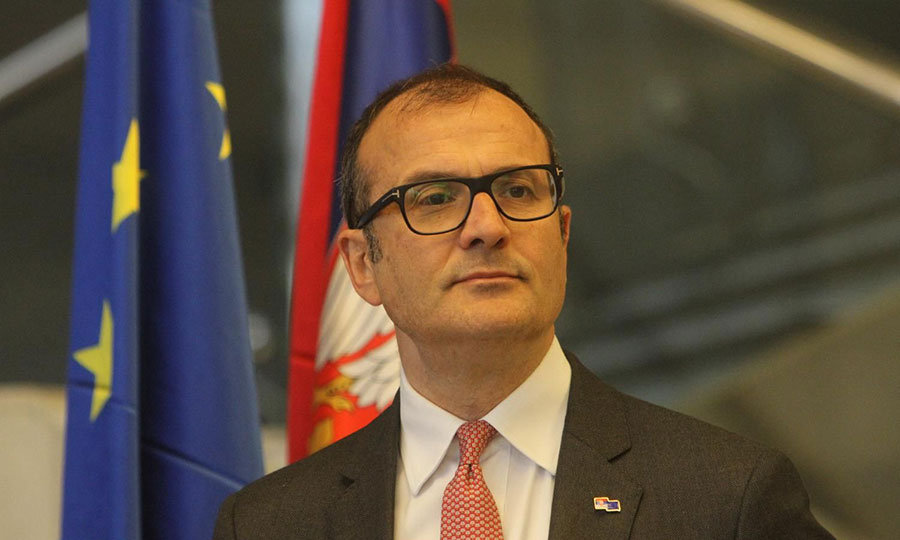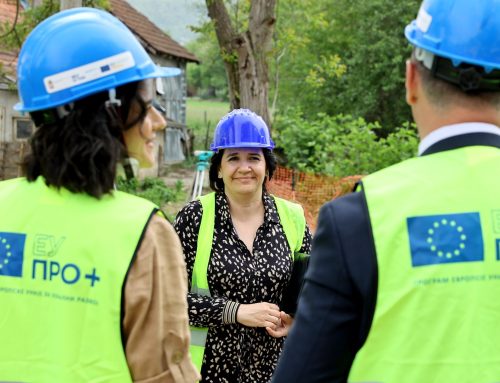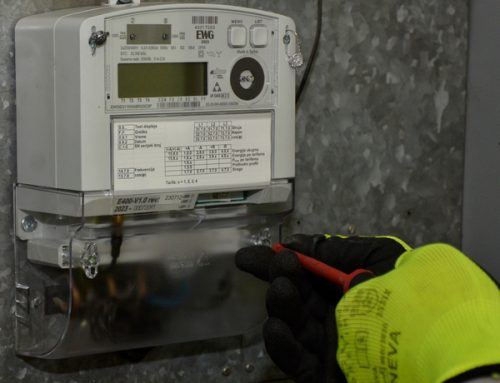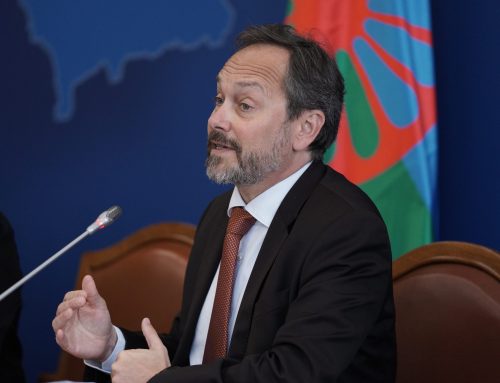In an interview with Blic daily, published on 20 May, Head of the EU Delegation to Serbia Sem Fabrizi discussed topics of major importance for Serbia’s EU path, expanding on benefits Serbia would derive from the EU-Western Balkans Summit in Sofia. Read the full interview below
By signing the Sofia Declaration, European leaders have given unambiguous support to the European perspective of the Western Balkan countries. The same message was sent 15 years ago. What’s the difference?
It is important that the same message is still there, which means that the EU remains consistent. Sofia was a great day for relations between the EU and the Western Balkan partners. First, the leaders of the EU and WB sat down at the same table and talked and exchanged opinions after 15 years. Second, it is important that unambiguous support for the European path was sent from both sides, the EU and WB. A path anchored to shared values and principles. Third, numerous initiatives were launched to underline that accession is a process, that continuous work is needed, and that economic development is key. Special focus was given to connectivity. Connectivity brings the region closer together and closer to the EU. There is a “soft” form of connectivity like digitalization and the “hard” one like infrastructure (road, railway, energy grid).
How will Serbia benefit from that?
For example, for Serbia the Nis-Pristina highway (peace highway) will became a reality in the next few years as one of the 11 EU projects to be implemented through EU funds, including the funding from the European Investment Bank and Serbia. So, if you are asking me what the difference is from the Thessaloniki Summit in 2003, is that the political message is there, but what has happened in those 15 years is that the entire region is much closer to the EU. Where the economy is concerned, the EU accounts for 80 per cent of the Western Balkan’s trade, we have invested three billion euros worth of grants in Serbia alone, visa liberalization was introduced for Serbia, Serbia signed a Stabilisation Agreement and opened its first negotiating chapters
Moving from words to action, is Kosovo, i.e. the signing of an agreement on the normalization of relations, the main requisite for accession to the EU?
Normalizing relations with Pristina and progress in the area of democracy and rule of law are the two main drivers of Serbia’s accession to the EU. Of course, Kosovo is a key element. The EU has already made it clear how important that is, which is precisely why it is facilitating the dialogue. We are committed to the dialogue, but there must also be progress in the rule of law.
I’m sure you hear this question all the time – will we have to say “yes” to Kosovo’s independence?
The EU has a status-neutral approach, we want the full normalization of relations between Belgrade and Pristina. The normalization should take the form of a legally binding agreement and through dialogue the EU is facilitating this objective.
These days the most important topic is a document the West and the U.S. might have or have not sent to President Vucic. Is there a document or not?
The EU’s role is clear. Both Belgrade and Pristina have accepted the EU as the facilitator in the dialogue and the High Representative Federica Mogherini to lead that dialogue. Not only did Belgrade and Pristina accept it, but the international community, too. It is very important to point out that this is our role, we have a team leading the dialogue, we are committed to that and that dialogue continued in Sofia. The rest is less important, I will not comment on the existence or not of such a document. The reality is such that the dialogue is being led with the EU’s help.
This means that there will be no changes to the format of the dialogue?
Yes, the dialogue stays within the current format and it will continue to be facilitated by High Representative Mogherini. We see both sides prepared to continue in the current format. They briefly also met in that format in Sofia, so we look forward to a new engagement.
Serbia is eager to get an accession date. Will 2025 be the year?
At a press conference in Sofia President Tusk voiced unambiguous commitment to the Western Balkan countries’ accession to the EU. As for the timing, it was made clear that there will no shortcuts or fast lanes for accession to the EU. Virtually, this means that each country must carry out the necessary reforms, implement them, and the date will come naturally when all criteria are met. Setting a date might create confusion, that everyone is just waiting for that date, whereas it is a process. The year 2025 is a time horizon proposed by the Commission by which a number of reforms in the whole EU should be achieved concerning the economy, the security and enlargement.
Will the EU still exist then? Britain is already at the door…
Of course. I am optimistic, because the foundation of the EU is still there and the countries are politically committed to working together. Look at our global role in foreign policy, trade, climate, migration… It is clear that only if we stay together can we continue to solve problems. At the same time, Brexit is difficult for us, but now we are focused on the process of creating relations between the remaining 27 countries and Britain. We are confident that we will reach a good agreement with Britain. Meanwhile, we have countries that wish to join the EU, such as the Western Balkan partners, which means that our project is very attractive. Our message is – optimism. And we will be stronger. We are also aware that internal reform is necessary, but if you look back, the EU is much stronger now than it was two years ago when many saw a big crisis coming. Nevertheless, we are not naïve, we are realistic, we don’t think that there are no problems, but are devoted to solving them together. Look, we are getting better and better in economy, we have the lowest unemployment rate in history. And clearly – if the EU grows, so does Serbia. A stronger EU is a stronger Serbia.
Who will get Pristina to fulfil its obligations? The forming of the Community of Serb Municipalities, for example?
Belgrade and Pristina have over the last few years reached a number of agreements through the technical dialogue, some of them are being implemented (telecommunication, Justice) and some are not. Pristina has ultimately started – due to our strong insistence – the process of forming the Community of Serb Municipalities, which was launched this past April. We are constantly telling both sides that what has been agreed must be applied, but at the same time it is important to look at the bigger picture, to work on full normalisation of relations. That was precisely the message the EU’s HRVP, Federica Mogherini, conveyed to Vucic and Thaci at the Summit in Sofia. All three agreed that this was the road that should be taken.
*This designation is without prejudice to positions on status, and is in line with UNSCR 1244/1999 and the ICJ Opinion on the Kosovo declaration of independence.




